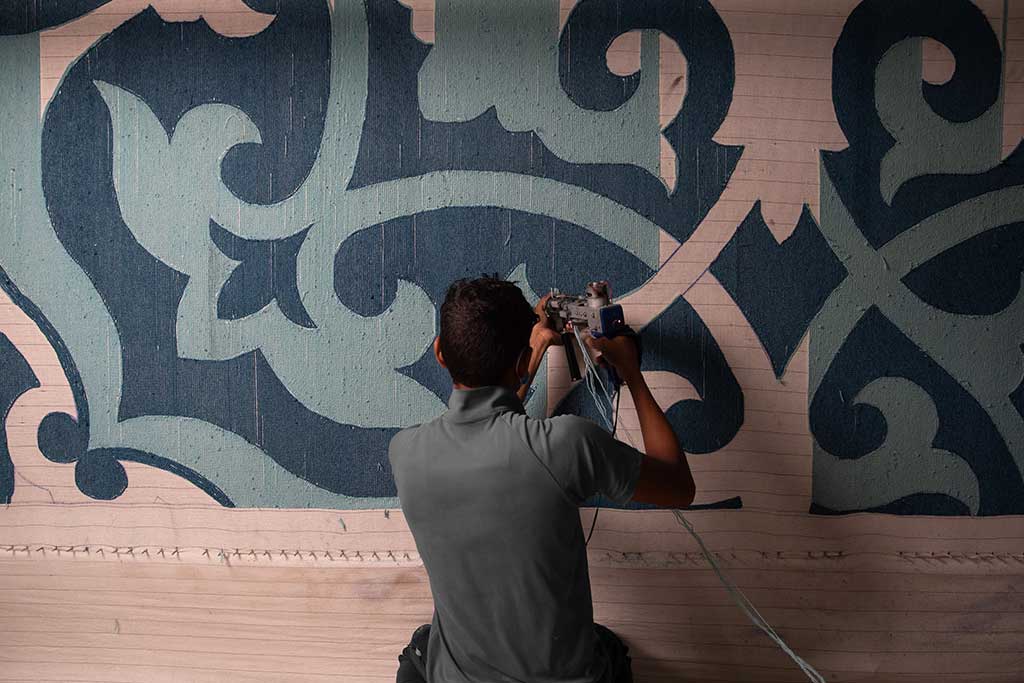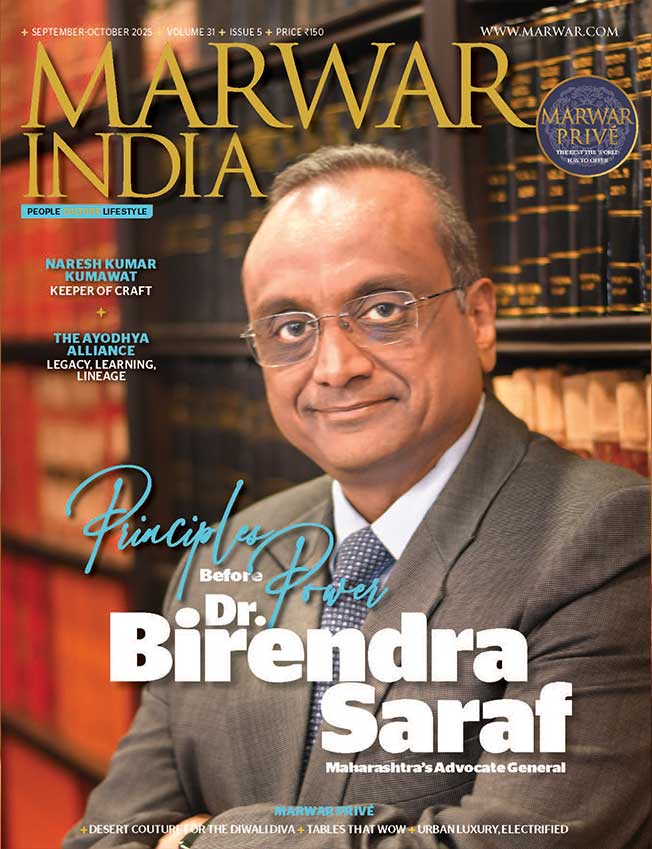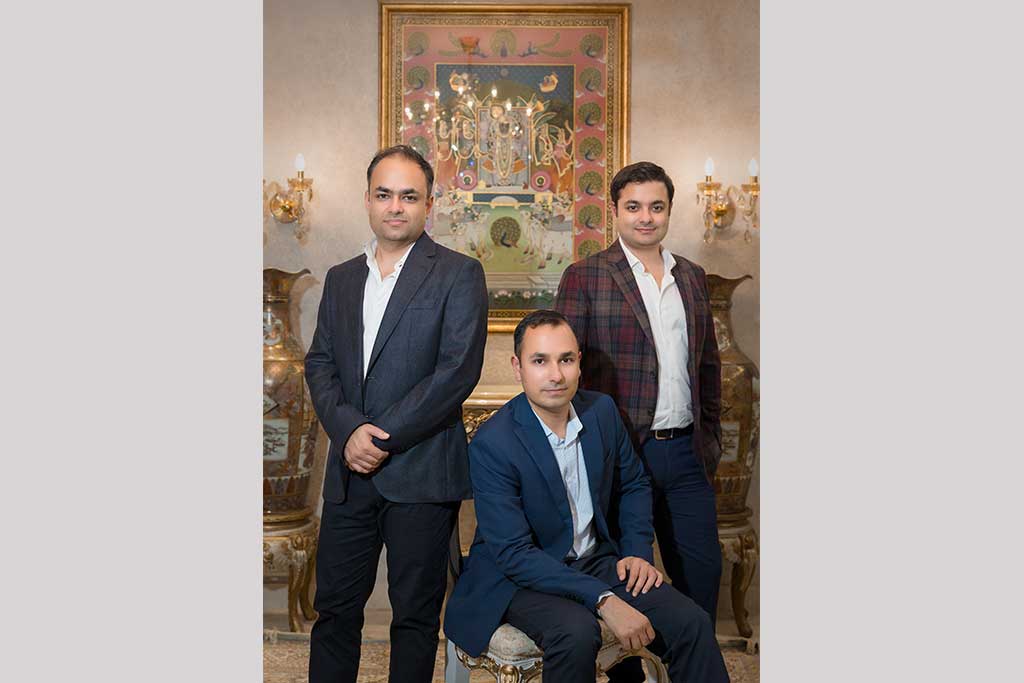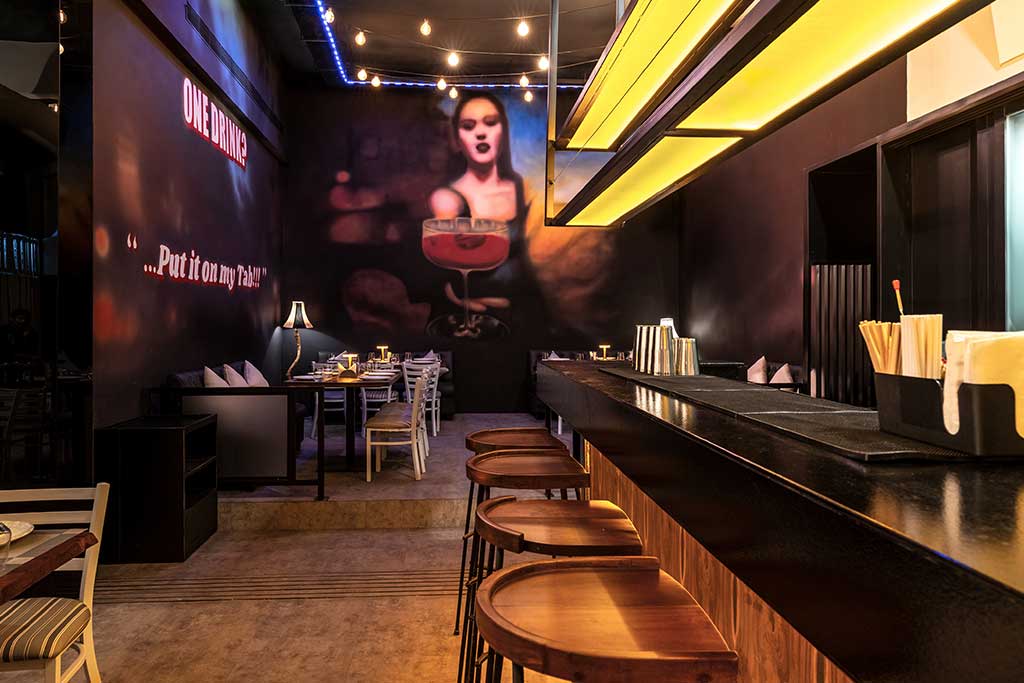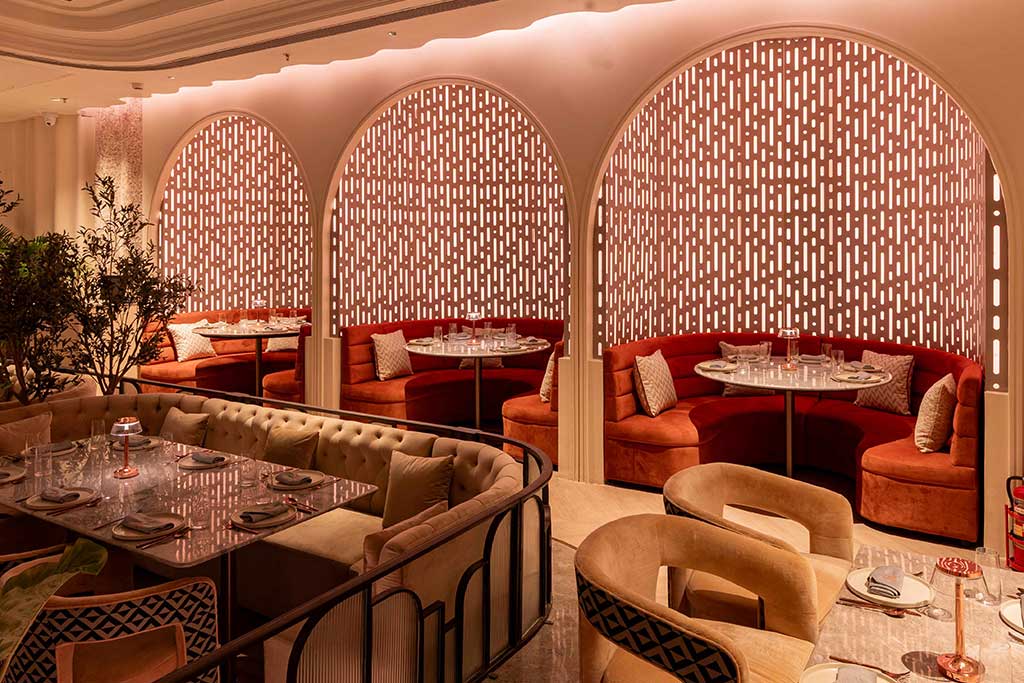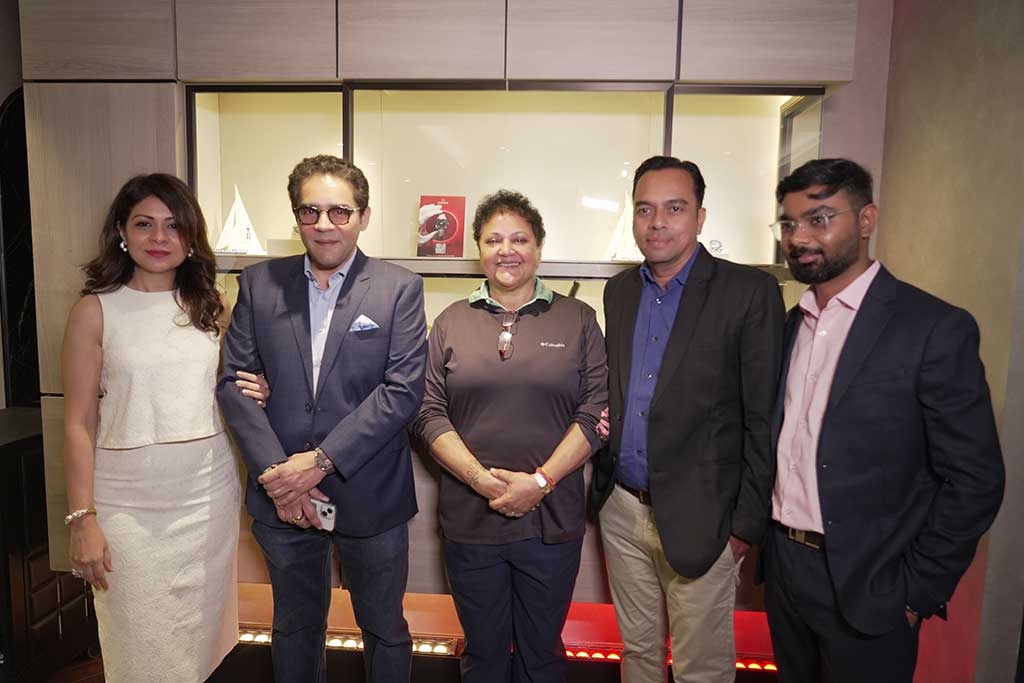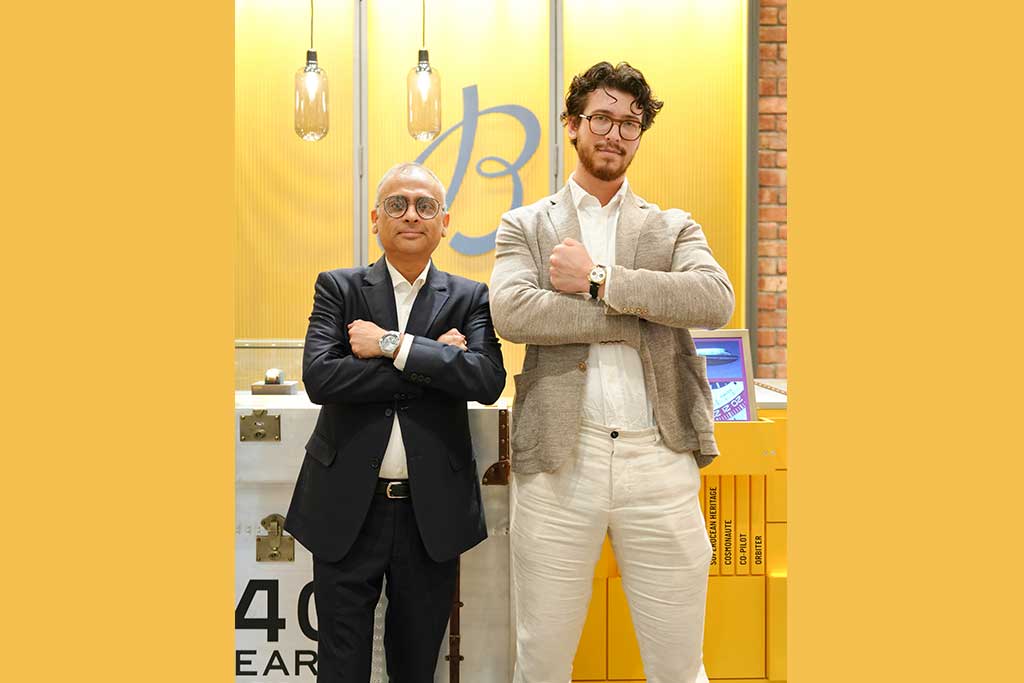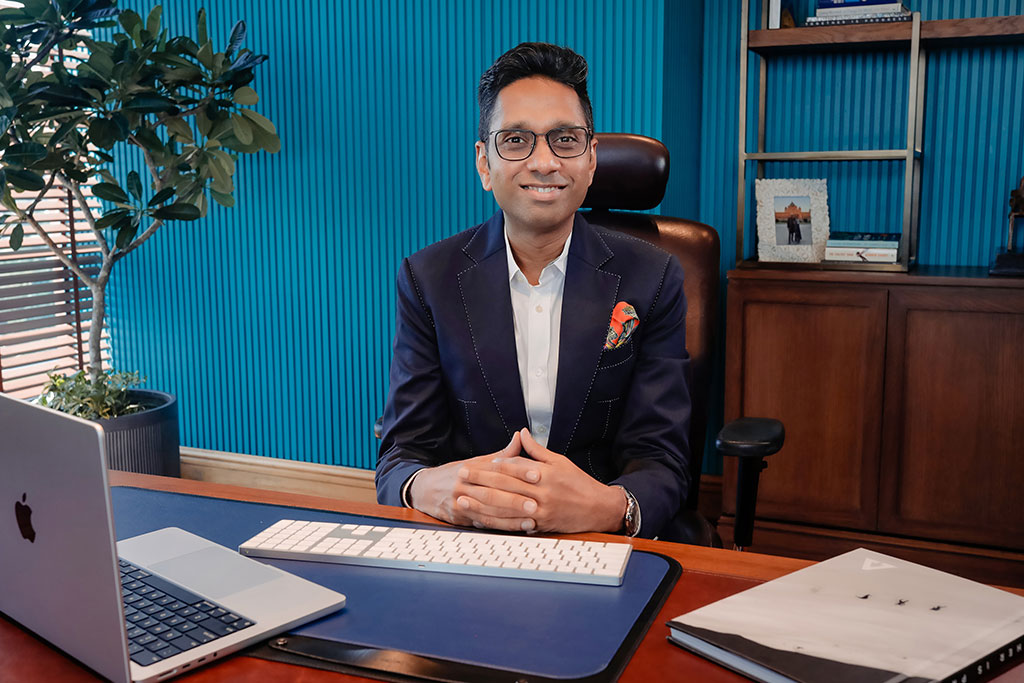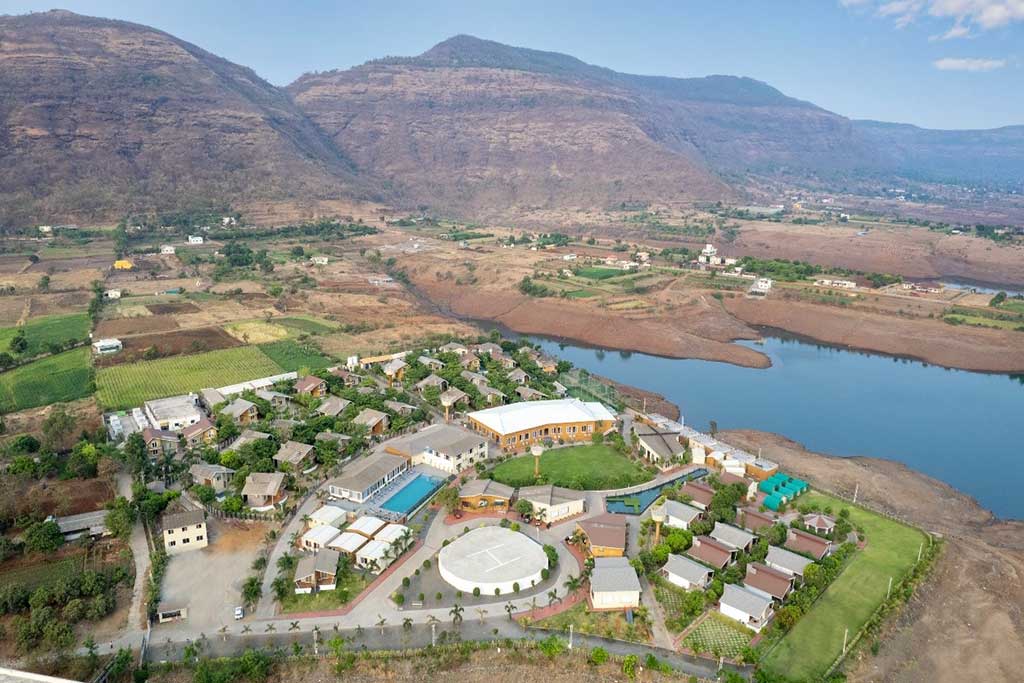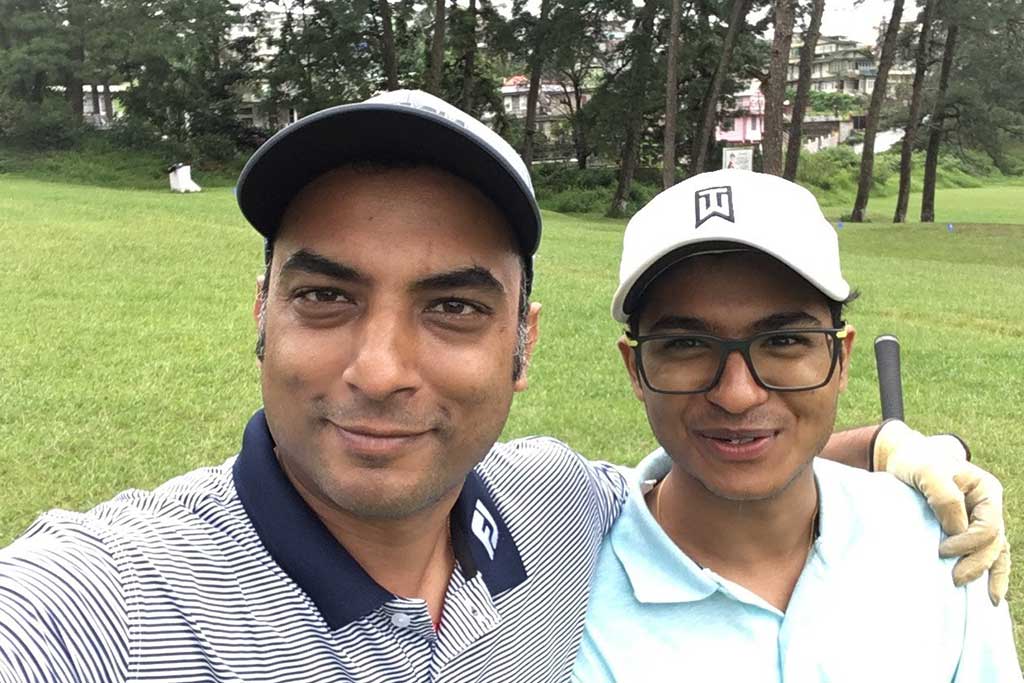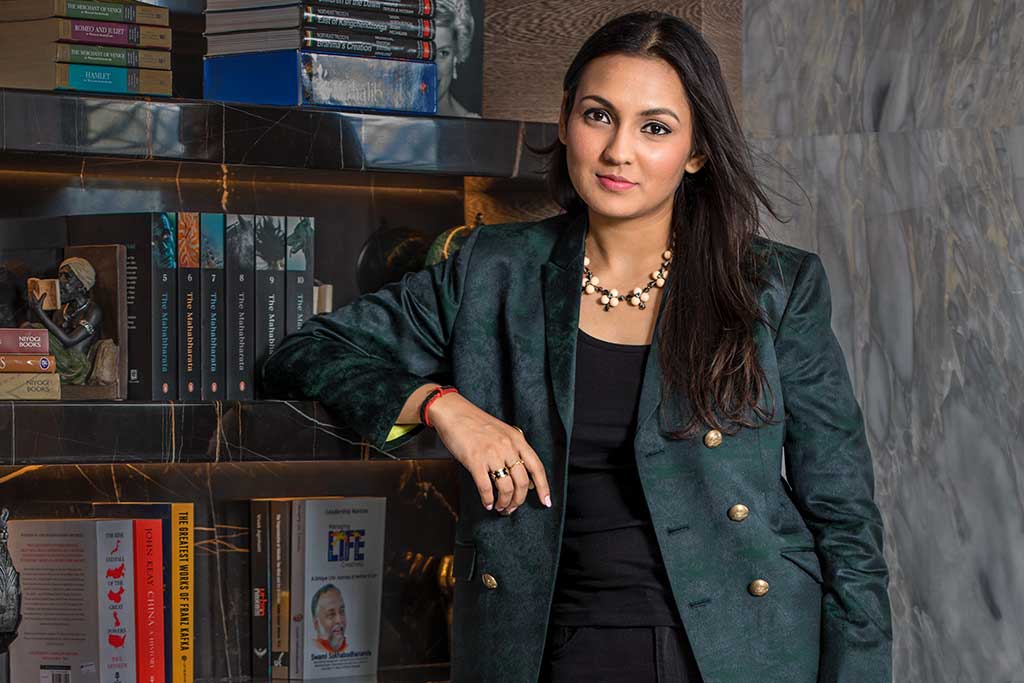Hands Carpets puts the spotlight on the 143-yearold legacy and the ancient heritage of hand knotted carpets. MARWAR speaks to Ravi Patodia, Chairperson, Patodia Exports, and his sons Apurva Patodia and Pranay Patodia, Managing Directors, on the journey and the aesthetic allure and craftsmanship of one of the leading handcrafted carpet brands in the world.
In a world where machine-made products are gaining significance, there is a carpet brand that respects heritage and culture and values the ancient art of handloom weaving. It has not only succeeded in keeping a 143-year old legacy of handcrafted carpet business alive, but also put the Indian craftsmanship and artistry on the global map.
With the allure of carpets and rugs taking centerstage, Ravi Patodia, Founder-Chairperson, Patodia Exports, offered his consumers ‘Hands’, a luxury label for handmade carpets and rugs. The finest handcrafted carpets are known to set the stage for engaging conversations, and adorn the most prestigious palaces, luxury hotels, and residences in the world.
Patodia Exports is renowned as the makers of the world’s finest hand knotted woollen carpet and world’s largest handmade carpet. With a flagship store in Delhi and a retail presence in Mumbai, Hyderabad, Dubai, and Singapore, the luxury carpet brand is exported all over the world today. Its newly opened experience centre in the heart of Mumbai is design par excellence.
Establishing the carpet business
The manufacturing unit for carpets was founded in 1881 by British entrepreneur A. Tellery, who discovered the skilled carpet-weaving community of Bhadohi, pioneering the Indian carpet export business. After independence, the business was sold to a Calcutta-based Marwari business house and in 1980, Patodias’ rose at the helm of the enterprise.
“We inherited the legacy of A. Tellery and are continuing the same by maintaining the highest standards in quality, innovation, and customer service. We have undertaken challenging projects and successfully executed them,” elaborates Ravi Patodia, who was born and brought up in Kolkata.
His family moved to Kolkata from Nawalgarh in Jhunjhunu District, Rajasthan. Patodia completed his graduation in Commerce from Calcutta University and moved to Bhadohi to jointly establish the
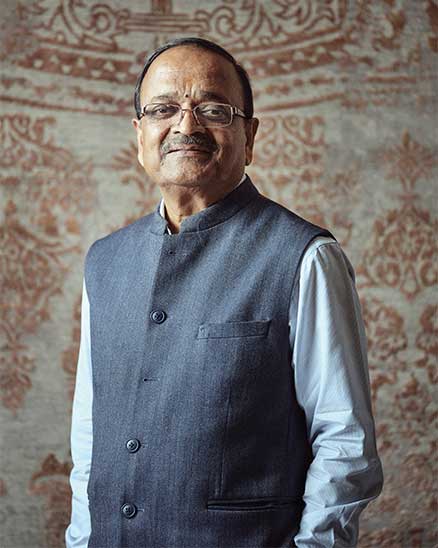
family business of carpet manufacturing in the early 70s. With a modest beginning from few looms and artisans, today their capacity employs over 1,000 looms. Over the years, the legacy of Tellery continues to thrive through world-class products and services.
His sons Apurva and Pranay completed their education from Welham Boys’ School, Dehradun and joined their father’s business as second generation entrepreneurs. They uphold this legacy with deep-rooted devotion to fine handcraftsmanship that goes into the making of their exquisite carpets. “We have divided our areas of responsibility within the organisation based on our individual strengths, while also maintaining the flexibility to manage each other's areas,” shares Apurva Patodia, the elder son and Managing Director.
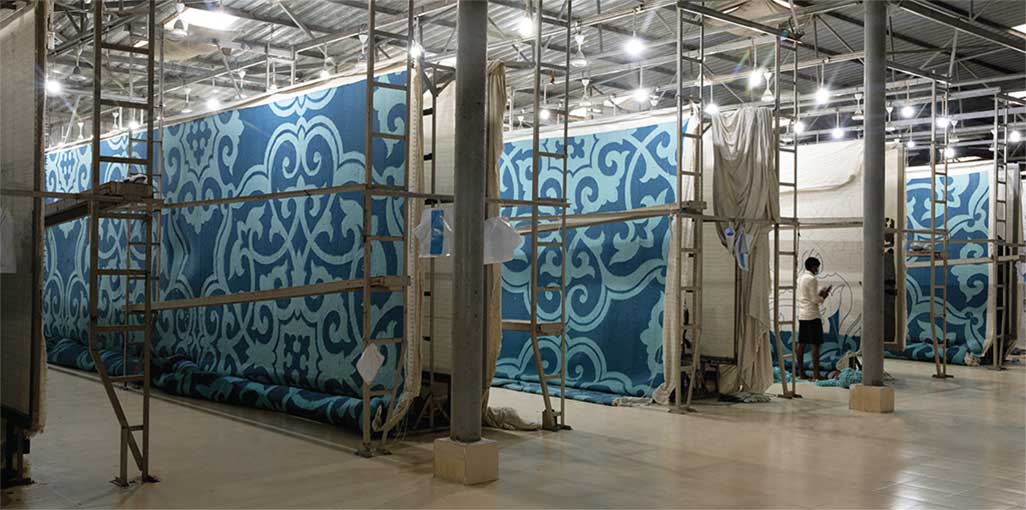
The making of Hands Carpets
We visited the extensive factory set-up of Patodia Exports located in Bhadohi, an hour’s drive from Varanasi, to get a first-hand experience of the start-to-end manufacturing of Hands Carpets. Taking a tour of the unit, you see tons of wool and yarn being processed to shape it into finished products, the lead time being subject to the nature of the work. The entire procedure involves an amazing network of weavers, artisans and craftsmen, most of whom are settled in and around the premise with their families.
“The making of carpets and rugs involves a stringent process that broadly consists of sorting, dyeing, washing, designing, spinning, weaving, and packing, and takes many days with the manufacturing and quality checks. Typically, any carpet would involve nothing less than 10-20 pairs of hands working on it, depending on various requirements. It takes around 8-12 weeks to make a hand tufted carpet and around 16-20 weeks or more for a hand knotted carpet. We have effective quality control systems operating at multiple levels,” says the younger son and Joint MD, Pranay Patodia.
A carpet making legacy, Hands reflects in its name a strong commitment to culture and tradition. “We are 100 per cent committed to old technology and making the best use of age-old design archives from different civilisations around the world. We approach traditional, transitional, and modern design styles with the highest regard for quality and creativity,” he shares.
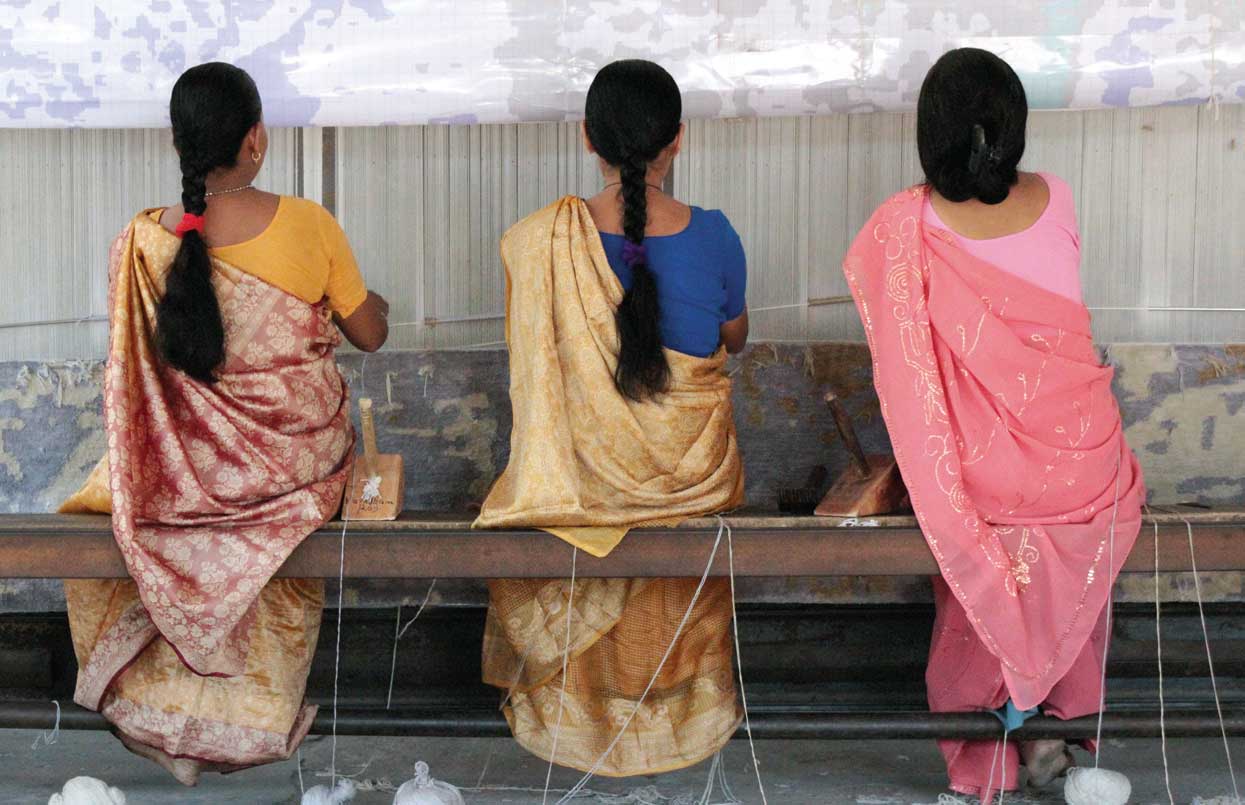
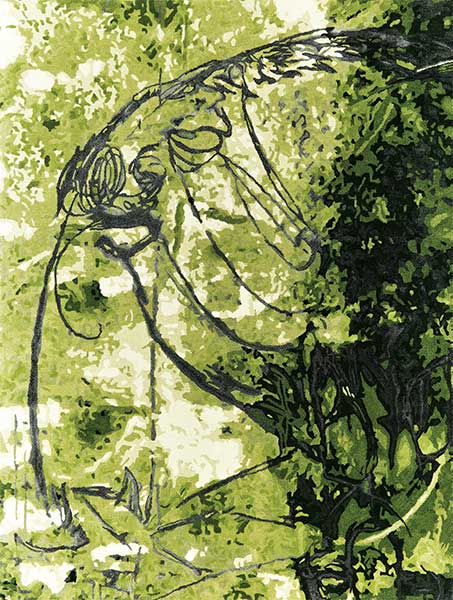
Artwork on the floor
A stunning sense of artistry, craftsmanship and captivating aesthetics is visible in the design approach of the products. It is almost like viewing artwork on the floor. “Every rug is a work of art on the floor. We call it the 5th wall. Our design collections are suitable for all kinds of interior settings, including classical, new classical, and contemporary,” says Pranay Patodia.
Far from being confined to the floor, the carpets and rugs are the focal points adorning walls, ceilings, and furniture, transcending traditional boundaries and uniting generations through crafts. “Primarily, Hands has been able to translate art, emotion, heritage and craft in its design approach, which touches the very chord of imagination of an artist or a designer,” adds the senior Patodia.
What sets these carpets and rugs apart is their premium natural fibers, ensuring not only aesthetic allure but also a commitment to sustainability. The amazing colour palettes add a touch of serenity to the living space, creating an ambience that resonates with the season. Each carpet and rug at Hands unfolds an exquisite series and collections. What is interesting is that, every season, the brand introduces new collections including Transitional, Contemporary, Art Deco, and Traditional, as well as Bespoke designs.
Amidst the impressive line-up of hand-knotted and hand-tufted carpets, stands a wall with images of their pride carpets. Starting with the world’s finest handknotted carpet with 4,900 knots per square inch; the world’s largest handmade carpet, a 12,000 m2 carpet commissioned for The Grand Mosque of Nur-Sultan, Kazakhstan, the largest mosque in Central Asia, and many more. “It is the largest handmade carpet in the world—a 12,000 m2 carpet in a single piece after installation with a 70m medallion in diameter. It took us a long time to understand how to go about making a carpet of such enormous size.
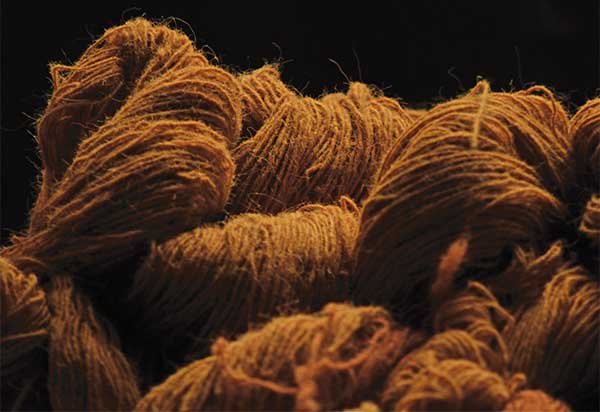
Of course, we took it up as a challenge and executed it in 180 days,” he says with a hint of pride.
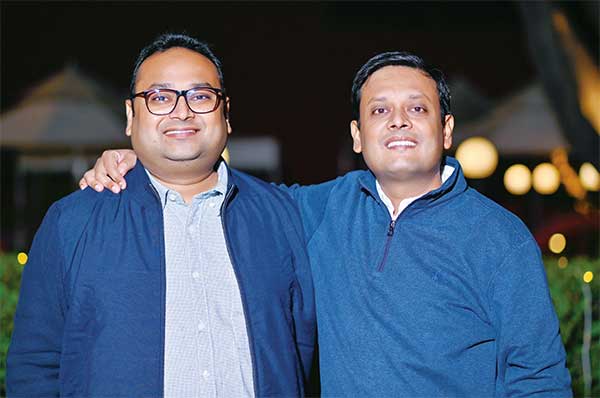
The carpet culture
A perfect example of leadership, Patodias connect with every artisan, weaver and individual in the organisation. As you take a tour of the various units, you get to meet their employees, some of whom have been with the company right from its inception. “Our greatest asset is our people. We consider our weavers and every individual connected to the organisation as part of our family.
There is a strong sense of teamwork throughout the organisation, and every individual is encouraged to contribute new ideas freely,” advocates Ravi Patodia.
The artisans and weavers are imparted skill development and training to empower them and help them earn a sustainable livelihood. “We conduct regular skill development workshops within the company and closely collaborate with team leaders to enhance the skill levels of our employees. This initiative instils a strong sense of pride in our team members, as they feel their growth within the organisation over the years. Additionally, we are in the process of establishing a training institute to impart various skills to aspiringartisans,” adds Apurva Patodia.
Community service is not only an integral part of their business but also a fundamental philosophy of the family. Over the years, they have undertaken numerous charitable activities, including organising medical camps, sponsoring children in schools, and contributing to social sports activities at the local level.
The growth curve
For any company to thrive in the industry, both brand creation and client servicing are essential. Hands has set classic examples of client servicing as far as international locations, and their growth curve is based on this formula. “Brand creation isn’t solely about front-end operations; what happens behind the scenes also contributes significantly to the end result. What sets us apart is the extra mile we go as a company and our inherent commitment to treating the end client of our client as the most important. This approach enables us to enhance our brand value,” they elaborate.
Patodia Exports’ business models range from direct manufacturing for end clients to collaborating with the best brands worldwide as a white-label manufacturer. “The objective is to secure ample business opportunities while providing maximum employment opportunities to the people of this region. Ultimately, the goal is to attain recognition through excellence in both product and service,” states Pranay.
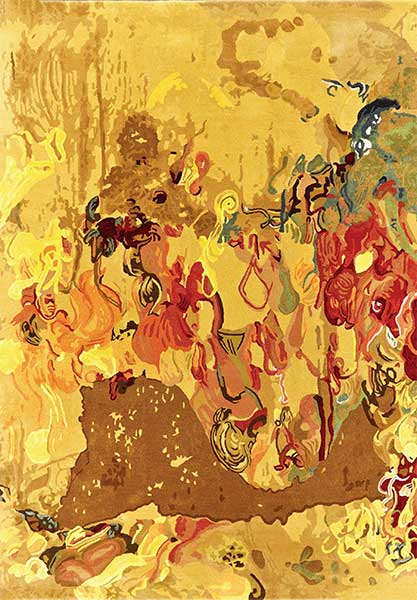
With time, the organisation has witnessed an impressive growth journey. “Our infrastructure is unmatched in the industry, and our captive capacity has played a major role in our achievements. Additionally, our ability to control the quality and meet the required international luxury standards for our products sets us apart,” he adds.
The company aims to achieve success through excellence. “We aim to be recognised as the best handmade carpet manufacturer in the world, not judged by size, but by the quality of our work and the excellence of our organisation,” is their concluding statement.

Recent Posts
Discover Your Perfect Honeymoon in the Maldives
For Indian couples embarking on their journey of togetherness, the Maldives has long held an almost mythical allure - a tapestry of turquoise
Jewels Fit For Generations : The Nemichand Bamalwa Story
Since 1987, Nemichand Bamalwa Jewellers has been more than just a name; it is a legacy of trust, craftsmanship, and innovation.
Welcome to "What's Your Plan?"
This vibrant social hub by DJRS Hospitality blends chic vibes with gourmet bites,
Rajasthan’s Crafty Fashion Takeover
Rajasthan, India’s desert jewel, is a repository of exquisite and time-honoured crafts.
‘Mercii’ Beaucoup, Mumbai!
Stepping into Mercii at 81 Crest, Khar, feels like entering a world where gratitude is plated with every exquisite bite.
Game. Set. Watch: Omega Celebrates Smriti Mehra
Luxury Watch Boutique Time Avenue, Mumbai, in collaboration with Omega, hosted a special event to honour none other than Smriti “Simi” Mehra,
Sand, Sea & Sky - High Thrills
Whether you’re soaking in serene natural beauty or diving into extravagant fun, the UAE offers the perfect setting for an unforgettable family getaway.
Dr. Anuja Luniya Shows You How to Stress Less, Live More
Meet Dr. Anuja Luniya, physiotherapist by degree, stress strategist by passion, and your go-to guru for turning everyday chaos into calm.
Breitling's 140th-Anniversary Vintage Watch Exhibition: An Unmissable Showcase
The Breitling Heritage Exhibition, a remarkable showcase of the brand’s most iconic timepieces from its 140-year history, has been on an extensive global tour with 55 stops across four continents.
Dawn to Dusk with Sidhart Pansari: Steering Primarc's Legacy into the Future
We follow the dynamic director of the fastascendant Primarc Group
4 Perfect Getaway Resorts Near Mumbai
For those looking to break away from the urban bustle, India's hidden nature
48 Hours In Canberra
Canberra is a vibrant city with a rich culture, awe-inspiring natural landscapes, adventure-filed activities, and hospitable locals.
Understated Power
In the charming town of Shillong, Meghalaya, golf is more than just a game—it's a family affair for Gaurav and Lakshya Bajaj.
Understated Power
The Lexus LX500d is a rare sight on the roads, and this exclusivity is where its distinctive charms resides.
The Money Manager
Engaging young, ambitious, tech-savvy successors to manage family wealth is a rising global need among the super-rich.

